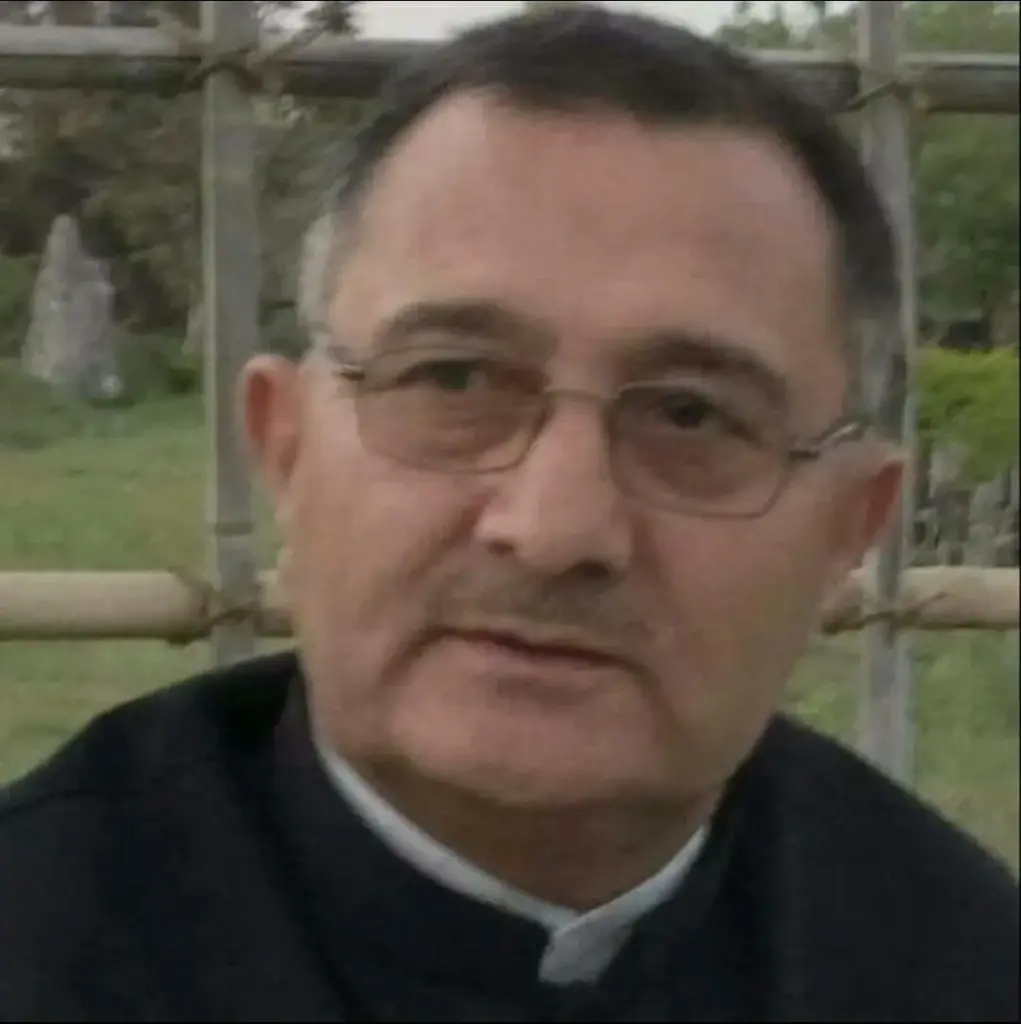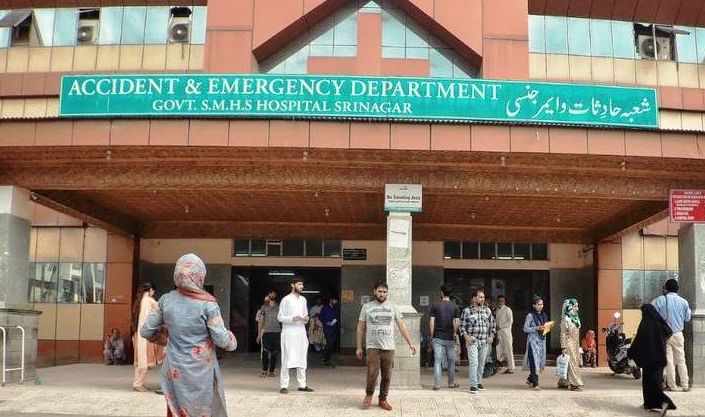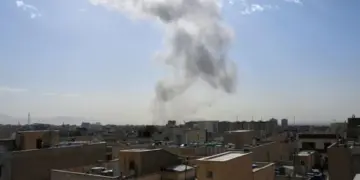
The healthcare system in Jammu and Kashmir has long been plagued by a myriad of challenges — ranging from inadequate infrastructure and staff shortages to poor accountability and systemic negligence. While efforts have been made over the years to improve the region’s health sector, incidents like the recent one at Srinagar’s Shri Maharaja Hari Singh (SMHS) Hospital brutally expose the deep and dangerous fault lines that still persist within the system.
The SMHS Hospital incident not only reveals lapses in medical ethics and accountability but also highlights how an already fragile healthcare infrastructure can collapse when basic discipline and professionalism are not maintained. It brings to light three major concerns:
- ALLEGATIIN OF MEDICAL NEGLIGENCE
The case centers around the tragic death of a patient, Javid Ahmad Bhat, allegedly due to medical negligence. While an official investigation will determine the exact sequence of events, the very allegation underscores a broader pattern — one where patients frequently report being misdiagnosed, neglected, or denied prompt medical attention in government hospitals across J&K.
Unfortunately, such incidents are not isolated. Numerous complaints have surfaced over the years, pointing to systemic apathy and avoidable deaths. In many cases, patients are made to wait endlessly even in emergencies or are denied admission due to unavailability of beds or doctors.
The absence of independent medical audits, transparent accountability frameworks, and regular disciplinary action has allowed negligence — whether willful or due to overburdened systems — to go unchecked. Without timely redressal or consequences, public trust in government health institutions continues to erode.
- ASSAULT ON A DOCTOR — SYMPTOM OF A BROKEN SYSTEM
In the wake of the patient’s death, a grieving relative reportedly slapped a doctor on duty. While such violence is absolutely condemnable and unacceptable under any circumstance, it reflects an underlying truth — people feel increasingly powerless and unheard in the face of institutional indifference.
In a functioning system, there would be clear grievance redressal mechanisms, helplines, ombudsmen, or at least a patient relations desk where families could seek explanations or accountability. But in most hospitals in J&K, there is no formal avenue for complaints or conflict resolution, leaving attendants and families with no choice but to confront staff directly in moments of despair.
This failure to institutionalize a structured response mechanism leads to chaotic and sometimes violent situations, putting both patients and medical professionals at risk.
- DOCTORS’ PROTEST AND COMPLETE SHUTDOWN OF SERVICES
Perhaps the most disturbing consequence of the incident was the collective shutdown of medical services, including emergency care, by the doctors at SMHS Hospital in protest against the assault.
While the safety and dignity of healthcare workers must be protected, and their right to protest acknowledged, the blanket suspension of hospital services — even for a few hours — is unacceptable in a system that is meant to function as an essential, life-saving public service.
Tertiary hospitals like SMHS cater to hundreds of patients daily. A shutdown, even if symbolic, can result in catastrophic consequences, especially for patients in emergency or critical care. Denying treatment due to a protest — no matter how justified the cause — amounts to punishing innocent patients who have no role in the altercation.
The incident, thus, raises urgent ethical and legal questions:
Should essential service providers be allowed to shut down operations entirely as a form of protest?
Can there be protocols in place that allow for demonstration of dissent without compromising patient care?
Is it not possible to continue services while simultaneously ensuring legal action against the assaulter and protection for staff?
WIDER IMPLICATIONS AND THE PATH AHEAD
The SMHS Hospital episode is not just an isolated tragedy; it is a grim reminder of the systemic collapse that threatens healthcare delivery in Jammu and Kashmir. It reflects the fragility of public trust, the lack of preparedness, and a growing culture of impunity and blame-shifting that leaves ordinary patients vulnerable and helpless.
The incident demands a multi-pronged response, including:
- Independent Investigation: Immediate and impartial inquiry into the alleged medical negligence, to establish facts and ensure justice to the family — either by confirming or dispelling the claim responsibly.
- Institutional Grievance Cells: Establishment of well-publicized patient grievance redressal cells in every major hospital, operational 24/7, with trained staff and escalation mechanisms.
- Legal Protections for Medical Staff: Stringent enforcement of laws that protect medical personnel from physical assault, while also ensuring that these protections do not shield them from legitimate accountability.
- Protest Protocols for Essential Services: Development of structured, non-disruptive protest methods within essential services like healthcare — such as black badges, peaceful sit-ins, or designated protest hours that do not affect patient care.
- Public Communication Channels: Hospitals need to communicate better with the public during crises — through press briefings, online updates, and patient information counters — to minimize confusion and fear.
- Rebuilding Trust through Reform: Ultimately, both doctors and patients are victims of a neglected and overburdened system. The government must make real investments in healthcare reform — not just in infrastructure, but also in ethics, efficiency, accountability, and human sensitivity.
CONCLUSION
The SMHS Hospital tragedy must not be reduced to a moment of fleeting outrage. It should serve as a turning point — a wake-up call for administrators, medical professionals, and the wider society.
In a region already grappling with political instability and resource constraints, the healthcare system must at the very least remain a haven of relief and reassurance. For that to happen, the system needs urgent repair, reform, and reinforcement — not just with money, but with morality and commitment.
Moreover, this incident sends an even more disturbing message — if this is the condition of a major and reputed tertiary care hospital like SMHS in the heart of Srinagar, one shudders to think about the state of smaller district and sub-district hospitals across Jammu and Kashmir. The lack of resources, training, and accountability at those levels could be even more severe, making them ill-equipped to handle emergencies or deliver quality care.
The question now is: will this incident finally spark the change that Jammu and Kashmir’s healthcare system so desperately needs — or will it, like many before it, be buried under files and forgotten?
The author is a freelance columnist and national TV debater. Views expressed are personal. He can be reached at ahmaayaz08@gmail.com.






